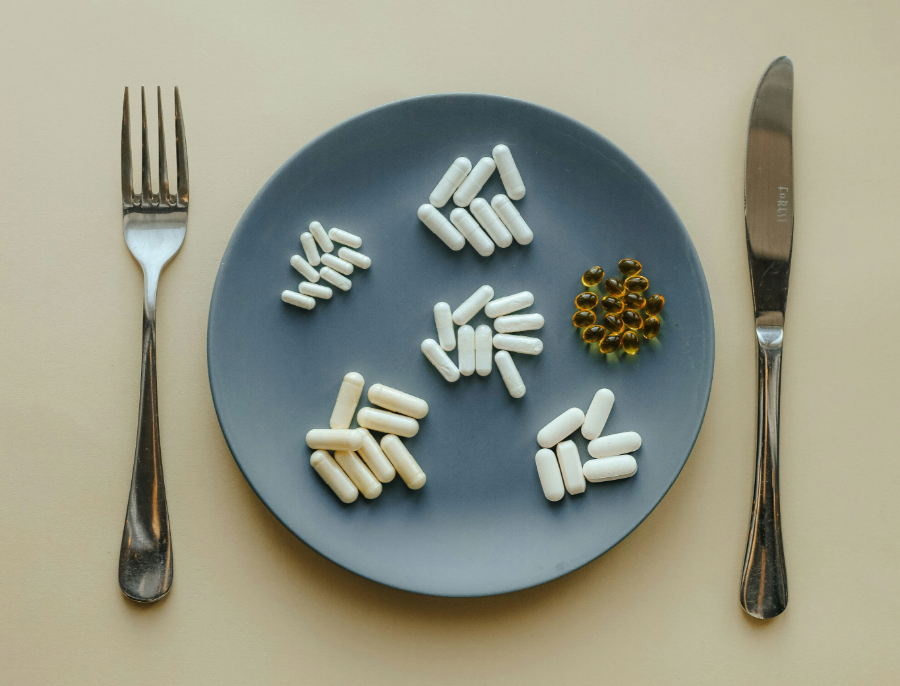The Dirty Secrets About Your So-Called “Clean” Supplements

The wellness industry wants you to think that just because something is labeled “natural” or “organic,” it’s health in a bottle. But if you’ve ever taken a deep dive into your medicine cabinet and wondered whether your supplements are really clean, the answer might surprise you. Dr. Will Cole, host of The Art of Being Well, recently interviewed Oliver Amdrup of Puori, a supplements company, about the supplement industry’s biggest problems. If you think your overpriced bottle of fish oil was doing your body a favor, you might want to reconsider.
What’s actually in your supplements?
“Protein powder is a great add-on,” Amdrup states. “But the Clean Label Project did a recent study in America’s best-selling protein powders…47 percent of them were above Proposition 65 on safety levels of heavy metals.” Let that sink in—almost half of the top protein powders on the market tested above the legal safety threshold for toxins like lead.
And if you’re someone who eats organic, the news gets worse: According to the U.S. Pharmacists, the organic products in the Clean Label Project study tested 79 percent above Proposition 65 levels.
Organic ≠ Pure
Time to debunk a persistent myth once and for all: “Organic does not mean testing for heavy metals,” says Amdrup. Just because your supplements have leafy fonts and eco-chic packaging doesn’t mean they aren’t hiding toxic ingredients.
So what does that mean for you and your morning smoothie? That scoop of chocolate protein could be a chemical cocktail. “Cacao protein powders do generally worse on the heavy metal side compared to the vanilla protein powders,” Amdrup explains.
Fish oil or toxic sludge?
According to Amdrup, “Smaller fish in the food chain that are faster” tend to be cleaner, but even then, it depends on the ocean. The idea that “Nordic fish are the best” is a myth. In reality, “Pacific Ocean…by far the purest, anchovies and sardines,” Amdrup reveals.
But just because it’s wild-caught doesn’t mean it’s safe either. “If we don’t test the actual raw ingredients, we don’t even know what is best,” Amdrup says. “You wouldn’t go to a sushi restaurant and eat a fish that would be so smelly and rancid. That makes, like, logically no sense.”
The same goes for rancid fish oil that gives you fishy burps—it’s not just gross, it’s oxidized and potentially inflammatory.
Supplements aren’t regulated like drugs
The U.S. Food and Drug Administration (FDA) doesn’t test supplements before they hit the market. Under the Dietary Supplement Health and Education Act of 1994 (DSHEA), manufacturers don’t even need to prove that their products are safe or effective before putting them on the shelves.
“The FDA is responsible for regulating dietary supplements,” said Dr. Pieter Cohen of the AMA, “but they regulate them as a subcategory of food.” Which means? “The manufacturer can introduce anything into the market that they believe is safe.”
In other words, the FDA only steps in after people start getting hurt.
The solution? Transparency
Puori is the only US supplement brand with the Clean Label Project’s full Transparency Certification. “Every single batch of every single product is tested before it’s released to consumers,” Amdrup says. “We put a QR code on the label so people can scan it and see for themselves.”
So far, according to Amdrup, “only one [company] has taken the 100 percent transparency pledge.”
What you can do (without losing your mind)
Should you throw out your entire supplement stash and live off vibes and prayers? Not quite. But it does mean you need to get savvier:
- Rotate your products. “I’m buying different chocolate brands,” said Amdrup. “Even within the same food group, vary it.”
- Check for transparency. If a brand doesn’t post batch testing data publicly, it could be a red flag.
- Stick to safer bets. Whey protein generally tests cleaner than plant-based ones. Vanilla performs better than chocolate.
- Watch your doses. “If you’re taking maybe six scoops, you’re actually six-timing this type of environmental toxin, potentially lead, in your smoothie,” Amdrup warns.
And always remember, “clean” doesn’t mean squat if you don’t know what’s in it. The next time you reach for your beloved supplements, ask yourself: Is the juice worth the squeeze?
One response to “The Dirty Secrets About Your So-Called “Clean” Supplements”
-
I make smoothies daily & take fish oil supplements, this is an eye opener. Wondering if nut & seed butters might be a better alternative to protein powders. Those of us that shun dairy avoid whey. Challenging to determine the least toxic powder.




















Leave a Reply